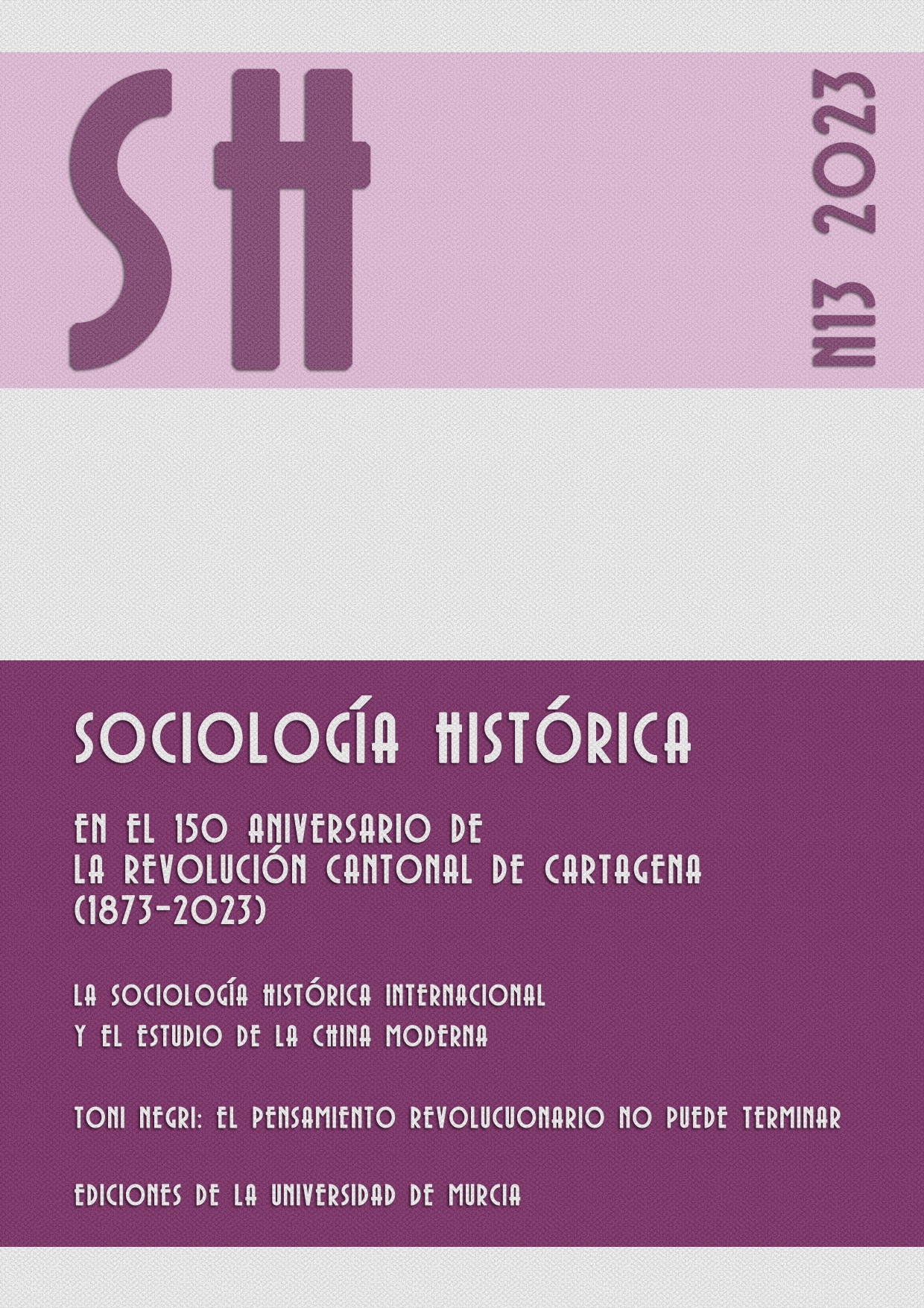Vila Nova de Ourém (Portugal) y la exitosa resistencia al descanso dominical entre 1929 y 1939
Abstract
The coup d'état on 28 May 1926 put an end to sixteen years of the Republic. With the conservative forces in power, the transition to a new regime began, with the birth of the Estado Novo in 1933. From 1929 onwards, the principle of standardising weekly rest in Portugal was observed, as a way of thanking the Catholic Church for its support in establishing the new political status quo. At the same time, it was a way of deepening ties with the Catholic Church, which was seen as an organisation that controlled the population. However, this standardisation of weekly rest was contested by merchants and industrialists living in the parishes of Freixianda and Olival, in the municipality of Vila Nova de Ourém, a bastion of Catholicism in Portugal because of Fátima. This criticism was reflected in the 1933 Inquiry into Sunday Rest in Portugal, an initiative carried out by the municipal executive in favour of generalising the measure. From then on, there was an intense debate in the local press, which culminated in the claimants' demands being accepted due to exceptions in the law; at the same time, it proved to be of little benefit to the newly established regime to enter into direct confrontation with the commercial and industrial classes in an unfavourable economic and social context.
Downloads
-
Abstract215
-
PDF (Español (España))139
References
BRITO, J. M. B, (1989): “Sobre as ideias económicas de Salazar”, Salazar e Salazarismo, Lisboa, D. Quixote, pp. 33-58.
CARDOSO, J. L. (2012): “Ecos da Grande Depressão em Portugal: relatos, diagnósticos e soluções”, Análise Social, 203, pp. 370-400.
DOMINGOS, N. (2010): “Desproletarizar: A FNAT como instrumento de mediação ideológica no Estado Novo”, O Estado Novo em Questão, Lisboa, Edições 70, pp. 165-196.
ESCADAS, D. V. (2020): “A legislação laboral da I República e a sua aplicabilidade em Braga (1910-1926)”, História. Revista da FLUP, 1, pp. 173-197.
GARRIDO, A. (2016): Queremos uma Economia Nova! O Estado Novo e Corporativismo, Lisboa, Temas e Debates.
GEORGEL, J. (1985): O Salazarismo, Lisboa, Publicações D. Quixote.
LEAL, E. C. (1997): “Nação e Nacionalismo: A Cruzada de D. Nuno Álvares Pereira e as Origens Simbólicas, Ideológicas e Políticas do Estado Novo (1890-1940)” Tese de Doutoramento, Departamento de História, Faculdade de Letras da Universidade de Lisboa.
LÉONARD, Y. (1998): Salazar e Fascismo, Lisboa, Editorial Império.
LUCENA, M. (1976): A evolução do sistema corporativo português - O Salazarismo, vol. I, Lisboa, Perspectivas e Realidades.
LUCENA, M. (1978): “Sobre a evolução dos organismos de coordenação económica ligados à lavoura (I)”, Análise Social, 56, pp. 817-862.
MATA, M. E. e Valério, N. (2003): História Económica de Portugal. Uma perspectiva global, 2.ª ed., Lisboa, Presença.
MEDINA, J. (2000): Salazar, Hitler e Franco, Estudos sobre Salazar e a Ditadura, Lisboa, Livros Horizonte.
NEVES, A. S. (2001): Memórias Etnográficas do Concelho de Ourém, Ourém, Câmara Municipal.
NEVES, J. P. (2003): “Vila Nova de Ourém na Primeira República: o conflito político-religioso”, Tesís de Maestría en Historia Local, Departamento de Historia, Facultad de Letras de la Universidad de Lisboa.
NEVES, J. P. (2005): A Fátima nos inícios do século XX: a Freguesia de Fátima (1900-1917), Fátima, Rotary Club.
NEVES, J. P. (2020): Artur de Oliveira Santos – um Republicano Idealista (1884-1955), O Administrador de Ourém ao Tempo das Aparições de Fátima, Lisboa, Edições Colibri.
OLIVEIRA, F. E. (2022): “Ourém entre Guerras (1919-1939): caracterização económica”, Tesís de Maestría en Historia Moderna y Contemporánea, Departamento de Historia, Facultad de Letras de la Universidad de Lisboa.
PEREIRA, J. et all (2006): Carta Arqueológica do Concelho de Ourém, Ourém, Câmara Municipal.
PINTO, A. C. (1995): Salazar’s Dictatorship and European Fascism, Problems of Interpretation, New York, Columbia University Press.
ROSAS, F. (1996): O Estado Novos nos Anos Trinta 1928-1938, 2.ª ed., Lisboa, Ed. Estampa.
SALAZAR, A. O. (2007): Como se reergue um Estado, 1.ª ed., Lisboa, Esfera do Caos Editores.
Copyright (c) 2024 Historical Sociology

This work is licensed under a Creative Commons Attribution-NonCommercial-NoDerivatives 4.0 International License.
Las obras que se publican en esta revista están sujetas a los siguientes términos:
1. El Servicio de Publicaciones de la Universidad de Murcia (la editorial) conserva los derechos patrimoniales (copyright) de las obras publicadas, y favorece y permite la reutilización de las mismas bajo la licencia de uso indicada en el punto 2.
2. Las obras se publican en la edición electrónica de la revista bajo una licencia Creative Commons Reconocimiento-NoComercial-SinObraDerivada 4.0 España (texto legal). Se pueden copiar, usar, difundir, transmitir y exponer públicamente, siempre que: i) se cite la autoría y la fuente original de su publicación (revista, editorial y URL de la obra); ii) no se usen para fines comerciales; iii) se mencione la existencia y especificaciones de esta licencia de uso.
3. Condiciones de auto-archivo. Se permite y se anima a los autores a difundir electrónicamente las versiones pre-print (versión antes de ser evaluada) y/o post-print (versión evaluada y aceptada para su publicación) de sus obras antes de su publicación, ya que favorece su circulación y difusión más temprana y con ello un posible aumento en su citación y alcance entre la comunidad académica. Color RoMEO: verde.










